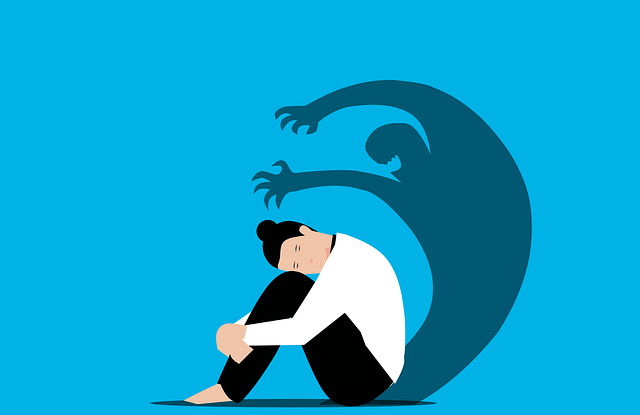Lone Tree Online Therapy uses the Resourceful Fronting Method (RFM) to build resilience and improve mental wellness through tailored online sessions. This innovative, accessible approach combines traditional therapy with digital tools, helping individuals transform negative thought patterns into growth opportunities and develop effective coping strategies. By encouraging self-awareness and personalized practices, Lone Tree Online Therapy fosters emotional healing and resilience for a diverse range of clients, making high-quality mental healthcare more inclusive and convenient.
“Discover the power of building resilience with RFM (Recovery, Flexibility, and Mastery) exercises in the digital age. This article explores how Lone Tree Online Therapy offers a unique approach to enhancing clients’ coping mechanisms through structured programs. We’ll delve into the benefits of online RFM sessions, providing a safe space for personal growth. Learn effective strategies for creating engaging content and measuring resilience post-therapy. Elevate your digital therapy experience and empower individuals to navigate life’s challenges with renewed strength.”
- Understanding RFM and Its Role in Resilience Building
- Benefits of Implementing RFM Exercises Online
- Creating an Effective Lone Tree Online Therapy Session
- Tips for Measuring and Enhancing Client Resilience Post-RFM
Understanding RFM and Its Role in Resilience Building

Resilience is a key component of overall well-being, enabling individuals to navigate life’s challenges with adaptability and strength. Lone Tree Online Therapy recognizes the significance of fostering resilience, especially in today’s fast-paced world where stress and mental health concerns are prevalent. That’s where RFM (Resourceful Fronting Method) comes into play as a powerful tool for resilience building. This innovative approach helps individuals develop inner strength by focusing on their mental health awareness and cultivating a mindset that embraces challenges as opportunities for growth.
By integrating RFM into online therapy sessions, Lone Tree Online Therapy offers a unique way to enhance mental wellness. The method encourages clients to confront and transform negative thought patterns, ultimately leading to improved emotional regulation and coping strategies. Through tailored exercises, individuals can build resilience, ensuring they are better equipped to handle life’s ups and downs with a sense of calm and composure. This proactive approach to mental health fosters a sense of empowerment, allowing folks to thrive in all aspects of their lives.
Benefits of Implementing RFM Exercises Online

Implementing resilience-focused exercises online through platforms like Lone Tree Online Therapy offers a unique and beneficial approach to therapy. The digital space provides a flexible and accessible environment for individuals to participate in activities that enhance emotional well-being. This is especially valuable for those who may face barriers in attending traditional in-person sessions, ensuring that mental healthcare is more inclusive.
Online resilience building exercises have multiple advantages. They allow for personalized practice, where individuals can engage with tools and techniques tailored to their specific needs. The structure of these programs encourages consistent participation, fostering a sense of discipline and self-care. Moreover, the convenience of accessing therapy from home promotes a deeper exploration of one’s emotional landscape, often leading to increased self-awareness and confidence boosting strategies. Cultural sensitivity in mental healthcare practice is also accommodated, as online platforms can provide diverse resources to cater to various cultural backgrounds.
Creating an Effective Lone Tree Online Therapy Session

In the realm of Lone Tree Online Therapy, creating an effective session involves more than just virtual interaction. It’s about cultivating a safe and supportive space that fosters both emotional healing and personal growth. To achieve this, therapists should integrate self-care practices into their approach, recognizing that participants are engaging in therapy from diverse backgrounds and with varied needs. By incorporating techniques for mood management and stress management, sessions can be tailored to address specific challenges, enabling individuals to develop resilience and enhance their overall well-being.
A key aspect of an effective online therapy session is the ability to adapt traditional therapy methods to a digital platform while maintaining confidentiality and privacy. Therapists should ensure clear communication channels, active listening, and empathy, much like in-person sessions. However, virtual settings offer unique opportunities for using interactive tools, visual aids, and even technology-driven relaxation exercises to enrich the experience and make it more engaging. Thus, by combining human connection with digital innovation, Lone Tree Online Therapy can provide transformative support for those seeking resilience-building exercises in a modern, accessible format.
Tips for Measuring and Enhancing Client Resilience Post-RFM

After implementing RFM (Risk, Resistance, and Mobilization) exercises with Lone Tree Online Therapy, gauging and amplifying client resilience is a critical step in their therapeutic journey. One effective method to measure resilience is by tracking progress through qualitative and quantitative assessments. Therapists can encourage clients to maintain journals or logs that detail their emotional states, coping mechanisms, and any challenges faced post-RFM sessions. These records provide valuable insights into the client’s ability to manage stress and adapt to changes.
Additionally, incorporating feedback mechanisms during therapy sessions allows for real-time gauging of resilience. Therapists can ask clients about their experiences, how they’ve handled stressors since the RFM exercises, and what self-care practices (like Social Skills Training or Stress Management techniques) have proven beneficial. By integrating these perspectives, therapists can tailor Self-Care Practices to enhance resilience further, ensuring clients feel equipped to navigate life’s challenges with renewed confidence.
Implementing RFM (Resilience, Flexibility, and Mastery) exercises through Lone Tree Online Therapy offers a powerful approach to building resilience. By combining the benefits of online accessibility with structured therapy sessions, individuals can enhance their ability to navigate challenges. Through measured assessments and tailored strategies, clients gain valuable tools to strengthen their mental fortitude. This article has explored the key components of successful RFM implementation, providing therapists with practical insights for creating effective online therapy sessions that foster resilience.














